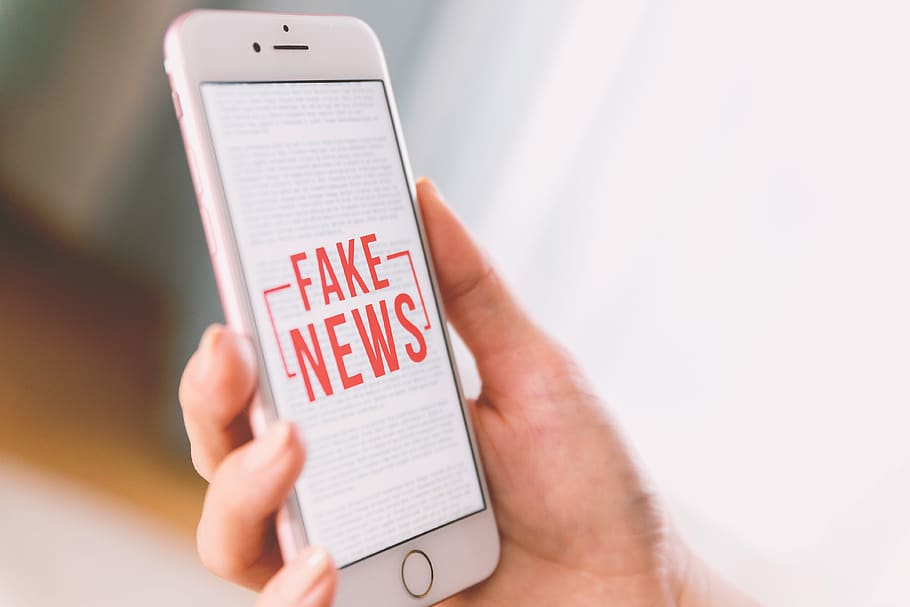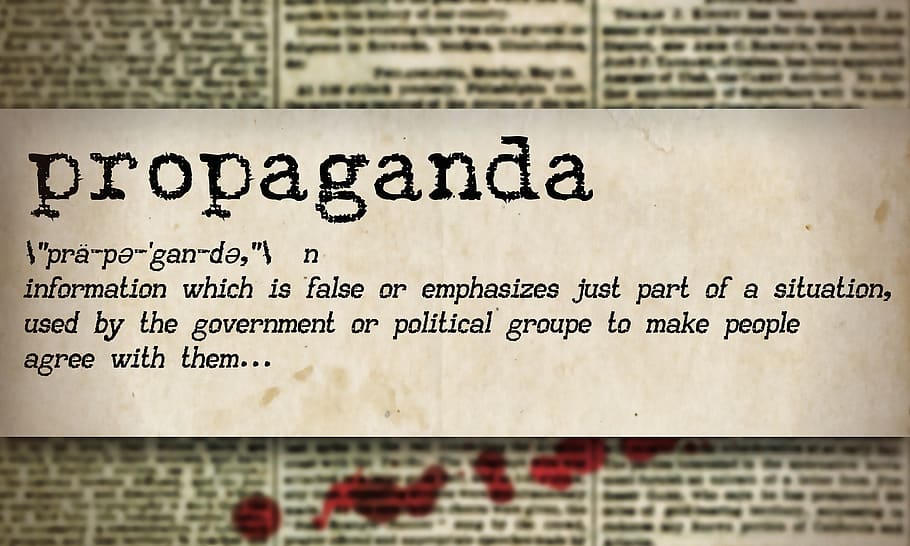Today, almost all people have internet access. However, with the recent development, we just hope that some people will be restricted from accessing it. These are the people who intentionally spread misinformation to hurt people’s reputations, harmful propaganda, and fake news article. Understand that we are not creating this guide to encourage you to report a specific post. We want to provide you with recommendations and advice to spot the disinformation and fight it.
What is Fake News?

There are a lot of potentially dangerous materials that you can find online. It is such a surprise that there has been little effort to control the illegal and unethical activities happening here. It is not unusual to hear someone being the subject of fake propaganda. False information will also often be shared by people who fail to check facts. Understand that it is your responsibility to know that what you are sharing is factual as an internet user. It is simply too easy for anyone to be involved in the sphere of negative emotion and unintentionally help the attacker spread the disinformation. One of the primary reasons for fake news dissemination is to harm the target. Do not allow yourself to become an instrument of these evildoers.
Fake news article could be stories, posts, and news created to mislead and deceive the readers intentionally. Often, this is developed to manipulate and influence the public’s view. It has been commonly used for political agendas, attack business rivals, and cause confusion. The need to identify the fakes from the facts is necessary since people need to have access to factual and objective information to form a cleaver opinion. In some instances, even news agencies will only show one side of the news and cause distraction.
How to Avoid Being a Victim of Fake News

The victims of fake news will not only be limited to the people who have become the subject of the disinformation. It can also be the people who have been manipulated by the news. We’ve listed some tips to ensure that you will stay away from untrue information.
Be Sure That You Are Only Using Trusted Sources

Perhaps the most practical method to avoid fake news is to ensure that you are getting your news from trusted sources. Some of the most popular sources of information are Huffington Post, CNN, and BBC. These agencies are less likely to spread false information since their reputation is at stake. There are instances when they can be biased; still, protecting their reputation is their primary goal. They will mostly check their news sources and verify the veracity when gathering their information. Although there are also situations when these news sites can become victims of fake information, you can ensure that they will correct it.
Avoid Using Social Media as Your News Source

As some of you may love to stay on Facebook, YouTube, and Tik Tok, these platforms have been plagued with people who are spreading false information. If you understand what is fake news, the trolls and the bots in these platforms would be the best definition. It is just so effortless to create a post saying that you witnessed an event, but can this be trusted? Almost all of us can say something over the net, but it doesn’t mean that it is accurate. For all you know, it could be just an internet troll who is trying to gain attention and cause confusion.
Therefore, it is always better to check if you are reading this post from a reliable source and a verified account. Unlike news agencies that accidentally share false information, it will be difficult for these people to take back what they said. The correction will not always be emotional and interesting and is unlikely to go viral like online disinformation.
Verify Information Coming from Activists and Influencer

In today’s age of information, much information that we need is being shared by internet celebrities, such as activists, digital influencers, and prominent accounts. This is perfectly fine as long as you verify the news. Consumers have a high trust over these people and according to the report, more than 90% of people will trust their recommendation rather than the promotion of their company. However, you should also remember that the companies hire most influencers to promote their products.
For instance, if you notice a change in the political opinion of an influencer who usually doesn’t want to be involved, be sure that they are not exaggerating the information they are sharing. In addition, they can be the target of hackers who might share fake news article to manipulate their followers. We are not necessarily saying that you should never trust these people, but you should not forget to check the facts before sharing them with your followers. There are different news that can help you verify the report’s authenticity.
Be Alert on Emotionally-Charged Articles

Misinformation, fake propaganda, and false news are often emotionally-charged. They aim to stimulate powerful emotions to encourage the person reading this to share it on their news feed. Nowadays, people think that objective news with lots of confirmations and sources appears dull. If you are using Twitter, you will understand how easy it is to share tweets. In addition, your likes could also appear on your list of followers. All it takes to spread the fake news is one click, and thousands of people will see it before you can even verify it.
Despite that, we are not necessarily saying that emotionally-charged articles are no longer valid. However, before you like, interact, and share content online, make sure to verify the information. If not, think about the possible damages it can inflict on a person. If you trust the influencer or activist sharing the content, and you know they have their fact-checking method, you are most likely safe from fake news article. However, if it is an unknown profile, be very careful in engaging with the content.
Lengthy Analysis Vs. Short Post

We’ve mentioned before that the reasons for fake news are to take advantage of your emotion and manipulate you. Therefore, the shorter emotional message would be a common way to do it. An article that presents a deep analysis of the subject offers more value to the readers. It comes with quotes from industry experts and useful sources in most cases. There is also not enough heated sentiment by the author. They prefer to approach the problem rationally and have a broader perspective. The content also has more focused on the aspects of the subjects. It is also more common to add the opinion of the experts, and it aims to impart you with knowledge, and the author has years of experience in this industry. If it seeks to form an opinion, it will focus more on facts and not depend upon emotions.
Rely on Fact-Checking Sites

While many people will discredit these sites, you have different options to verify the shared information. You should look at the website to verify the veracity of the viral news before you even share it on your news feed. There will often be red flags that you will notice that you will not encounter on the factual statement. Some reliable sources to check your information would be NWACC Library, Snopes, Politifact, Truth or Fiction, CNN Fact Checking, and Poynter. Also, don’t just believe any video and photo you see online. With the accessibility of editing tools, it is too easy for anyone to manipulate them. For pictures, you can use Google reverse image search to check the original form of the picture. Facebook, Tiktok, and YouTube should never be the source of your information since they are filled with fake news article.
Read the Complete Article

We understand that people nowadays have a shorter attention span. They prefer to consume short videos and articles. Moreover, companies know that clickbait articles can help them capture their audience’s attention and increase the organic traffic of their website. This can sometimes lead to confusion since most people will only read the heading. It is not that often that they will get a complete idea of the content. Even on a video, they will only watch it for a couple of minutes.
What are the Types of Fake News?

There are various opinions when determining what is fake news. When evaluating the news article, there are different kinds of false information that you should be aware of. Here are some of them.
Clickbait Articles
These pieces of content are fabricated intentionally to gain higher web traffic. The main purpose of this content is to improve the advertising profit of the company. Clickbaits are a form of sensationalism. It grabs the audience’s attention and enhances the CTR of the web publisher. Normally, this will be at the expense of accuracy and truth.
Propaganda

Propagandas are types of content that people create to mislead the public. The developer of this article or video showcases their biased viewpoint. We often see this in political marketing to advance the agenda of the subject.
Parody and Satire
Different websites have published fake news articles for parody and entertainment purposes only. Examples of parody sites are The Daily Mash, Waterford Whispers, and The Onion.
Fake Journalism
There are instances when even journalists and news peddlers will be reporting false information. Failure to check the authenticity of the information leads to the spread of fake information. There have been so many situations where a social crisis happened due to sloppy journalism.
Misleading Headlines

Sensationalist or misleading headlines are not completely false. However, the distorted headline is one reason that makes this kind of content dangerous. These news are emotionally-charged and will spread immediately. Usually, the platform will showcase only tiny snippets of news on the audience’s feeds.
Biased News
Most people will be interested in news that validate their opinions. Therefore, it is not surprising for biased information to become viral. Regardless of whether the audiences share the same opinion or not, they will be sharing these pieces of content either to praise or dispute the content.
Different platforms have all taken measures to combat the spread of false information However, you should also do your part to guarantee that it will not damage the subject’s reputation. If you are a victim of fake news, do not hesitate to reach out to us. Reputation Treatment has been helping people reclaim their damaged credibility and protect their privacy.
